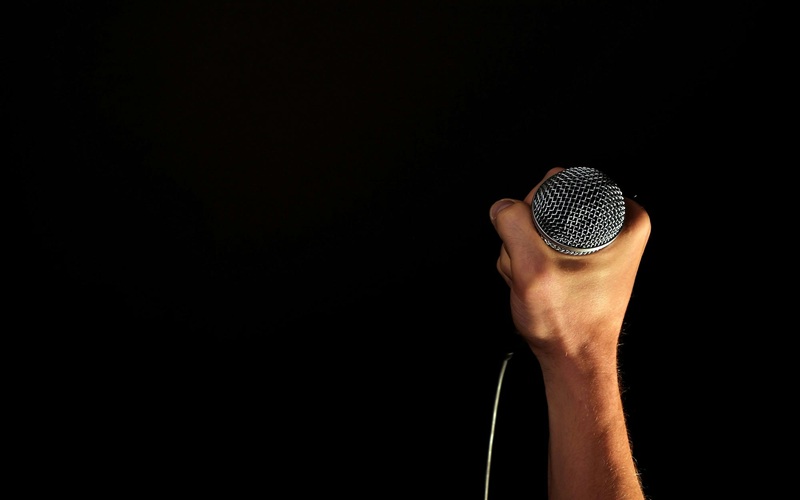The Farewell Song
It was the last day of school. The air was thick with a mix of relief and anticipation. Everyone was taking pictures, signing shirts, laughing a little louder than usual to hide the sting of goodbye.
Then Rishi stood up.
He was quiet—the kind who always sat at the back of the class, doodling in his notebook or staring out the window like he was somewhere else entirely. No one really expected much from him, and maybe that was the problem. Because when he walked up to the mic during the farewell ceremony, holding a guitar that looked almost too big for him, a ripple of awkward whispers started spreading.
“What is he doing?” someone giggled.
Rishi cleared his throat. “I wrote this for… well, for this moment,” he said, voice unsure. “I know we weren’t all friends, but… we were something. And I think that matters.”
He started playing.
It wasn’t perfect. His voice cracked once. He fumbled a chord. The lyrics were a little too sincere—something about memories stitched into corridors and laughter echoing down staircases. Somewhere in the middle of the second verse, someone from the back muttered, “Cringe.”
But Rishi didn’t stop.
By the time he reached the last chorus, something had shifted. The room had grown still. One of the girls in the front row was quietly crying. A boy who had mocked him earlier looked down, suddenly unsure.
When he finished, Rishi didn’t wait for applause. He smiled, nodded awkwardly, and stepped down. There was silence—then a small wave of claps. Genuine. Hesitant. Growing.
Years later, no one remembered who had the best farewell outfit. No one remembered the jokes or the awards or the rehearsed speeches.
But almost everyone remembered Rishi.
And the song that made them feel something real.
The Rise of the “Cringe” Culture
We are living in an age of curated selves—where irony is armor and detachment is a style. A world where even vulnerability has to pass through filters, captions, and algorithm-friendly timing. In such a world, authenticity—when raw, unedited, and trembling—feels misplaced. It doesn’t trend. It doesn’t always photograph well. So instead of leaning in, we flinch. Instead of listening, we scroll past. And we call it cringe.
“Cringe” has become shorthand for anything that exposes emotional truth. A love letter, a voice note that goes too deep, a public confession, an old photo where someone dared to dream visibly. We roll our eyes, we laugh, we scroll. But beneath that reaction is a question we’re all quietly avoiding:
What part of us are we trying to protect by dismissing theirs?
What Are We Really Laughing At?
When we mock someone’s sincerity, are we laughing at them—or are we laughing to cover up the part of us that still feels too much?
There’s something incredibly confronting about witnessing someone else’s unguarded honesty. It reminds us of the parts of ourselves we’ve silenced. We laugh not because it’s ridiculous, but because it’s brave. And bravery, when we’ve lived too long in fear of feeling, becomes uncomfortable.
So we wrap our discomfort in a word.
Cringe.
And we move on—without having to face what it stirred within us.
But what if we stayed a moment longer?
What if, instead of recoiling, we allowed ourselves to soften?
The Discomfort of Depth
Depth doesn’t always wear poetic robes. It often arrives awkwardly, stumbling over its words, unsure of how it will be received. It’s a teenager reading her poem in front of a class. It’s someone confessing they miss a person they never officially dated. It’s a grown man crying during a film because something on the screen reminded him of his father’s silence.
These are the sacred moments that make life real. They’re also the ones we’re trained to hide.
Our culture celebrates confidence, but often rejects the fragility that precedes it. We are encouraged to “speak up,” but only if it’s smooth, witty, and socially calibrated. But truth—raw truth—is rarely smooth. It stutters, it shakes, and sometimes it sobs. That’s not failure. That’s the proof that it matters.
Why We Fear What Feels Real
Realness demands presence. And presence requires us to be seen—not just in our accomplishments, but in our uncertainties, desires, grief, and wonder.
But being seen is terrifying in a world that is quick to reduce, ridicule, and retweet.
We’ve been taught that emotion is a liability. That stillness is laziness. That dreaming out loud is embarrassing unless you already have proof of success. And so, we learn to edit ourselves. To present only what fits into a neat narrative.
But life isn’t a caption.
It’s a contradiction. A chaos. A curve of meaning hidden in moments we often overlook.
And in that chaos, in those small trembling truths, is the very marrow of being human.
The Irony of “Cool”
We chase “cool” like it’s the cure to our craving for connection. But cool is distance dressed up as desirability. It’s the art of not caring too much. Not loving too hard. Not believing too deeply.
Cool keeps us safe—from ridicule, from heartbreak, from exposure. But it also keeps us numb.
On the other hand, the so-called “cringe” moments—the open letters, the passionate speeches, the off-key serenades—are soaked in presence. They might make us uncomfortable, but they also remind us: someone dared to feel fully. Someone chose realness over approval.
In a world so obsessed with being untouched, the truly touching moments are labeled embarrassing.
But maybe that’s the point. Maybe the things that touch us are meant to feel uncomfortable—because they bypass the brain and go straight to the soul.
Reclaiming Cringe as Courage
What if we stopped asking, “Is this cringe?”
And started asking, “Is this honest?”
The cost of real connection is exposure. The willingness to be misunderstood, even mocked. But within that risk lies the deepest reward—a life that is not just seen, but felt.
At Half-Said, we live in the space between what is spoken and what is buried. We believe that the unfinished sentence, the silent look, the hesitant confession—they carry more truth than a thousand polished posts. We believe that “cringe” is just a synonym for “unfiltered courage.”
If we continue to dismiss emotional expression as weakness, we risk raising a generation too guarded to be genuine, too ironic to be intimate, too scared to be sincere. And what a tragedy that would be—to be so consumed with appearing invulnerable that we forget how to love out loud.
An Invitation
So here’s a quiet rebellion:
Say what you mean, even if your voice trembles.
Write the poem, even if it never rhymes.
Admit you care. Cry when it hurts. Believe in beauty, even when it makes others scoff.
Let your cringe be your courage.
Because in the end, when we look back on our lives, it won’t be the perfectly composed moments we remember. It will be the raw ones—the ones that made our hearts ache, our voices break, our eyes well up.
It will be the almosts, the unspokens, the half-saids.
And those are the things that make us real.




